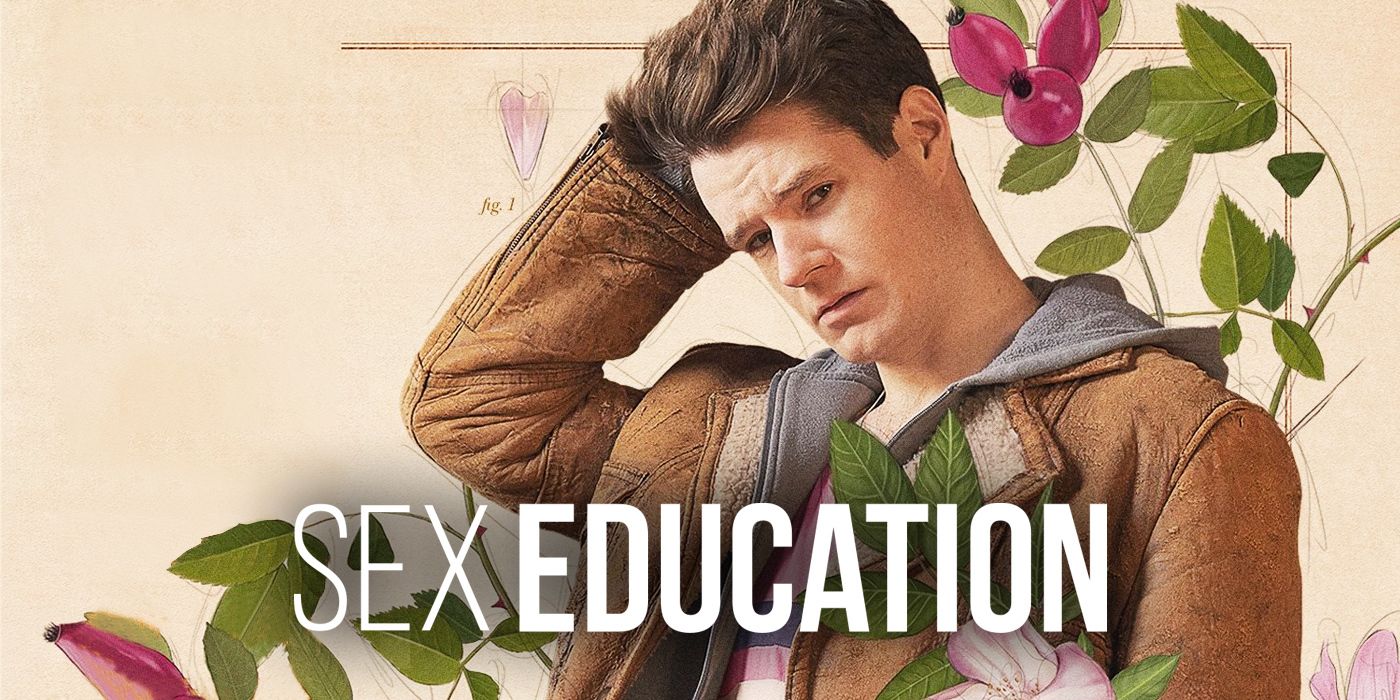In think pieces, television, and film, queer men in media have been historically defined to very limited roles. Depicted as depraved homosexuals, naive twinks, or sexual predators, media leans on tropes that often exploit gay men for views over storylines. Often, they are diminished to jokes or chalked up to their sexual nature, leaving little room for legitimate queer content, featuring queer actors, to thrive on film and television. These harmful stereotypes, still persistent today, set queer men back in their depicition of legitimate love stories.
Now, pop culture is pushing back. The recent season of Sex Education highlights the problem some gay men have overcoming toxic masculinity. Similar to Lil Nas X, who has been challenging traditional gender roles demanding love from partners in lieu of sex in his recent music video That’s What I Want, Sex Education Season 3 finds a unique portal into examining how those issues transform affect a gay character coming to understand what it means to be in a romantic relationship, that's more than just sex.
In Sex Education, Adam Groff (Connor Swindells) is a recently out homosexual who skirts hard conversations by taking the easy road out. His father, taught love from a place devoid of emotions, perpetuates the cycle of violent masculinity for Adam, teaching him the only way to be a man is through repressing anything that makes us human.
As experts say, this emotional isolation from parents or other people in their life provides a negative feedback loop for men later on in life. “Maturity for men means emotional stoicism, autonomy, and self-sufficiency, which is a very lonely existence,” writes education director Vicki Zakrewski for Greater Good Magazine. “Research has shown we all need human connection, cultivating men’s natural capacity for emotional attunement and relationships is critical for their wellbeing.”
Adam’s character development over the series led to him developing feelings for his fellow high school student Eric Effiong (Ncuti Gatwa), a queer kid he beat up for most of the first season. Now in a budding relationship with Eric, Adam finds it impossible to communicate what he wants, seeing homosexuality as a knock on his masculinity. Eventually, Ola Nyman (Patricia Allison) breaks through with Adam and teaches him that anger and violence are not long-term solutions to processing feelings. She tells him to turn around when talking to people if eye contact is too vulnerable. Later, he implements this with Eric, opening himself to being vulnerable with his partner asking for his intimate needs to be met. After two seasons of struggling with internalized homophobia and taking his frustration out on others, Adam learns it’s okay to ask for his emotional, and sexual, needs to be met.
“Avoidance of vulnerability may be compounded by distress related to masculinity socialization, leaving gay men with painful affective states and deficient coping mechanisms,” writes William B. Elder, Susan L. Morrow, and Gary R. Brooks in their qualitative investigation of gay mens’ lifestyles. “Denying emotional vulnerability also has harmful effects on gay men’s relationship satisfaction and longevity.”
Adam’s behavior checks out as fight or flight, a coping mechanism to put off trauma as long as possible. As Adam leans more into his queer identity, he unlearns masculinity as an act of aggression, silence, and isolation. Instead, he realizes vulnerability comes outside of expressing their needs just physically, it comes with being emotional, too.
Over the course of Season 3, Adam attempts to put into words his feelings for Eric in a poem. But when he finally gives it to him, both characters realize the relationship has run its course. This action does open Adam up to realizing this was his first legitimate heartache, meaning that Adam has learned to trust someone else with his heart.
Richard Isay, author of the book Commitment and Healing: Gay Men and the Need for Romantic Love, writes a little bit about this phenomenon, saying, “Boys may grow up distrusting the love of another person and will find many other ways of finding self-esteem. Gay men seek affirmation not through an enduring, loving relationship but in cultivating large networks of friends, pursuing transient sexual liaisons, and focusing on professional success.”
Open conversation surrounding sex positivity is wonderful, reaffirming of something often stigmatized in the queer community, but many gay men find the sexual openness surrounding the queer community off-putting. Seeing Lil Nas X wail on a guitar with tears streaming down his face or watching Adam stoically process how his father’s emotional isolation further stigmatized his queer identity will hopefully create a space in media and encourage other gay men to follow suit, diving deep into their emotions.
Sex Education Season 3 is streamng now on Netflix.



